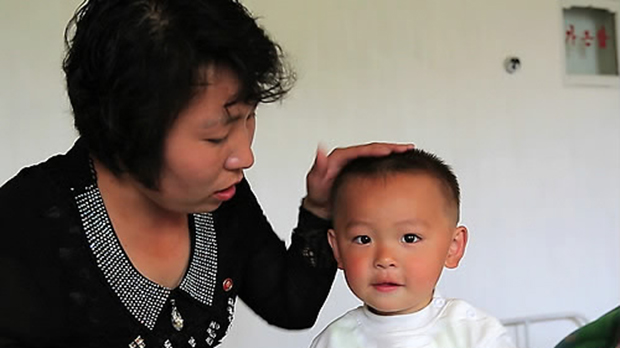Posted on : Jun.6,2019 16:14 KST
Modified on : Jun.6,2019 16:19 KST
 |
|
A North Korean child in a pediatric ward in Pyongsong, South Pyongan Province, who will be receiving aid from the World Food Programme.
|
On June 5, the South Korean government decided to provide US$8 million from the Inter-Korean Cooperation Fund to fund public health programs and to provide nutritional support for infants, young children, and pregnant women in North Korea. This is basically the first humanitarian aid that the South Korean government has given to the North during the presidency of Moon Jae-in. Among the aid provided, US$4.5 million will go to the World Food Programme (WFP), with the remaining US$3.5 million going to the UN Children’s Fund (UNICEF). With the health of vulnerable groups in North Korea being threatened by the worsening food situation in the country, the government’s swift decision to provide aid was an appropriate step. We hope that this decision will help improve inter-Korean relations while also promoting dialogue between North Korea and the US.
The important thing is how quickly the aid is executed. When UN organizations receive funding, it takes from three to six months for supplies to be purchased and for the aid to reach its ultimate recipients. That process should be expedited to ensure that vulnerable groups receive meaningful assistance. In September 2017, the South Korean government decided to provide North Korea with US$8 million in aid, but that was eventually scrapped because of worsening tensions on the Korean Peninsula and opposition from the US. This time around, the situation is a little different. Relations between North Korea and the US are much different than they were in 2017, and the US is no longer as stubbornly opposed to aid to the North. During a telephone call between the leaders of South Korea and the US last month, US President Donald Trump voiced his support for humanitarian aid to the North, signaling that some kind of understanding had been reached between the two countries. Given these changes, the South Korean government should be even bolder in its approach to aiding North Korea both because of humanitarian concern and because of brotherly affection for North Koreans.
Hopefully, Seoul will also take this opportunity to move forward with food aid to the North. Last month, the government’s National Security Council said it would continue reviewing food aid to the North while adequately canvassing public opinion on the topic. According to the WFP, North Korea will have a food shortage of 1.36 million tons this year. This summer and fall are likely to be the most difficult time for North Koreans.
Government actions suggest that it’s focused on providing aid through international organizations to ensure the transparency of the food distribution. But since these organizations take a long time to do their work, the government should also be considering the option of providing aid directly. If food aid doesn’t arrive when the need is most dire, it’s bound to be much less effective. At the moment, there are apparently more than 1.3 million tons of food in South Korea’s emergency reserves. It reportedly costs 500 billion won (US$423.15 million) simply to manage those reserves each year. Providing an appropriate amount of this aid would accomplish three goals at once: putting into practice our brotherly concern for North Koreans, reducing the cost of managing these reserves, and aiding the rural economy.
Along with providing food aid, South and North Korea need to explore ways to actively cooperate in fighting an outbreak of African swine fever in North Korea. South Korea has already proposed working together to combat the outbreak, but the North has yet to respond to that proposal. Joint action is also a preventative measure aimed at preventing the infectious disease from spreading to the South. Since this is a good opportunity for testing out a mutually beneficial relationship between South and North Korea, we hope that Seoul will be more proactive about sounding out Pyongyang’s intentions and persuading it to cooperate.
Please direct comments or questions to [english@hani.co.kr]






